On a recent weekend trip to Yilan, I spent a night at Border Hill (邊境之丘), a spacious bed-and-breakfast set flush against the forests of Baishihjiao (白石腳).
To get there, we had driven down the coast and made unlikely turns into a narrow country lane, asphalt giving way to pebbles and grass. The red-brick manor housed just three rooms, outfitted with antique furniture. From facade to interior, it seemed like a transplant from the English countryside.
Over tea and scones, we learned that the owner was an art professor who had studied in the UK, which explained the English influences — more personal history, less exoticism. He ran the inn with his brother and maintained a painter’s studio and family residence next door.
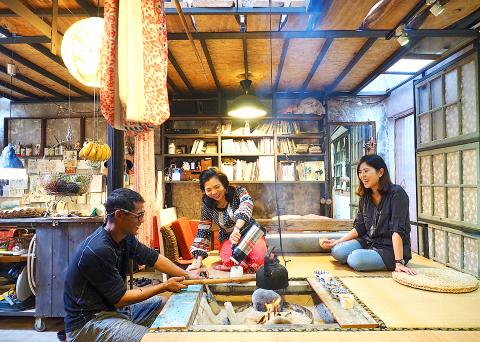
Photo courtesy of Dear B&B
Border Hill and its quiet surroundings were an ideal way to unplug from city life. Yet ironically, we’d never have made it there if not for Dear B&B (dearbnb.com), an online curator in Chinese, Japanese and Enlgish of exquisite minsu (民宿), or homestays, from around the country.
With thoughtful design, a strong sense of individuality and air of exclusivity, Taiwan’s homestays have grown a world apart from their earliest incarnations as spare rooms in retirees’ homes. For years, weak marketing and a lack of English resources has kept the best of these homestays under the radar of international tourists — but no longer.
A COMMON DREAM
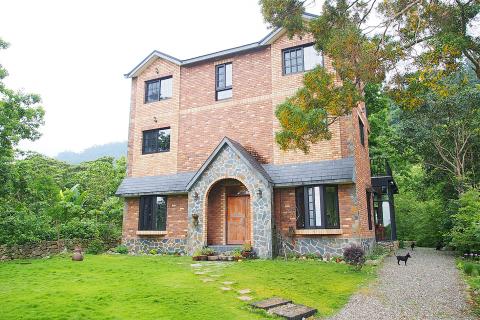
Photo courtesy of Dear B&B
“The main thing was that we felt Taiwan’s travel accommodation was just too wonderful,” says Michelle Wen (溫名秀), who co-founded Dear B&B in 2012 with partner Rae Lin (林睿瑀).
For the widely-traveled duo, who share backgrounds in marketing, the starting point was the realization, reached through their own travels, that Taiwan offers world-class travel accommodation but lacks name recognition.
“When you leave your hometown, you start looking back on it,” Wen says. “When I was traveling, I formed this impression that I was always introducing myself as coming from Taiwan, explaining that Taiwan isn’t a part of China.”
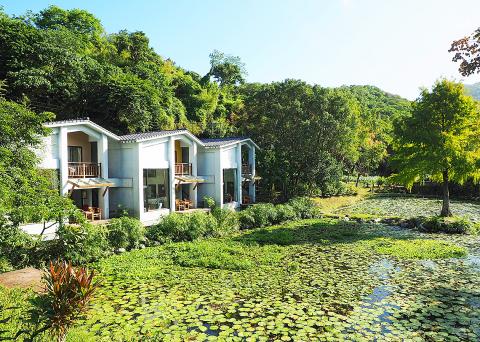
Photo courtesy of Dear B&B
While the idea of putting up in a local’s home has become common practice through Airbnb, Wen and Lin say that what sets Taiwan’s homestays apart from that of other countries is the generosity of the owners. For many, the job of running a homestay is an aspiration, not just a way to capitalize on a spare room.
“This is a lifelong dream for many of them,” Wen says. “Everyone feels that they must give the best to their visitors, so for example in many of the beautiful coastal properties, you will see the owners stay in the warehouse or the smallest rooms, while giving the biggest rooms to the visitors.”
In fact, many of Taiwan’s best homestays are now better described as family-run boutique hotels. Many now take the form of purpose-built estates, with hefty investments into commissioning architects and designers. The results are comparable with international hotel and resort chains, but retain a personal touch.
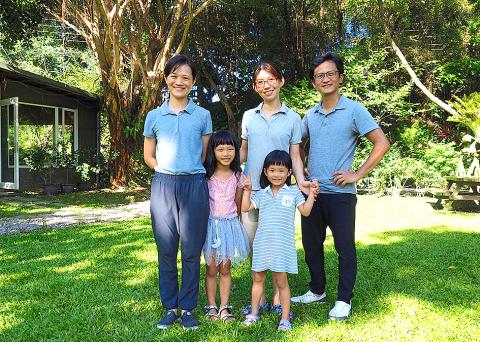
Photo courtesy of Dear B&B
To illustrate, Lin highlights Houhu Garden and Resort (後湖水月) in Hualien, embedded in hills overlooking the Pacific Ocean. The property was developed by a retired journalist, who bought and converted the marshland into his family home and four holiday villas, surrounded by lush greenery and water lily ponds.
But things weren’t always this way.
AUTHENTIC ABODES
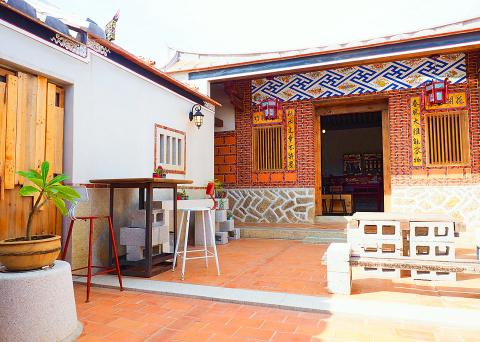
Photo courtesy of Dear B&B
Homestays have been a fixture of local tourism for some 20 years, since labor law amendments in 2001 set a limit on working hours and freed up days for domestic travel. They were a quick way to meet rising demand for travel accommodation, as well as a source of supplementary income for retirees and other houseowners.
As domestic tourism developed, rudimentary spare rooms gradually gave way to a focus on themed and luxury properties, modeled after the likes of fairytale castles and the blue-and-white seaside properties of Santorini.
The preference for a more unaffected style of accommodation, true to the local character of the surroundings, is relatively new. Lin and Wen say that this coincides with a shift toward independent, outbound travel — enabled by cheaper international flights and online resources — which has shaped locals’ views of travel accommodation as a way to experience culture at the grassroots level.
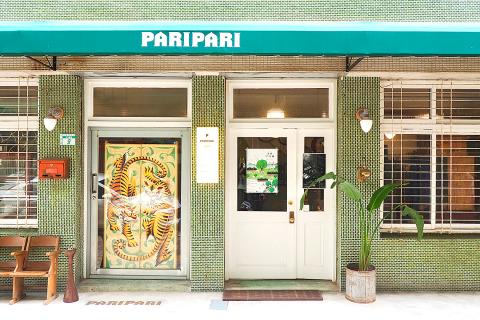
Photo courtesy of Dear B&B
Though luxury remains within reach, it is no longer traded off for authentic connections to the land and community. That was my experience earlier this year, when I used Dear B&B to arrange a stay at Luluwan (魯魯灣), a humble two-storey, two-bedroom house in the Aboriginal settlement of Rinari (禮納里) in Pingtung, whose owner also turned out Rukai cuisine with a modern twist.
Some of the homestays are loving restorations of traditional architecture, such as Kinba Guest House (金八古厝) in Kinmen, converted from a Qing-era mansion and run by two young locals. Others unexpectedly meld elements from different cultures, like Sunden Sundu (山田山宿) in Yilan, where guests gather to drink tea around a centerpiece hearth designed by its Tibetan owner.
To Lin and Wen, the humanistic values of such dwellings are diluted in the dry, directory-style Web sites and hotel aggregators on which many homestay operators still rely. There, “good and bad” establishments alike are thrown into the mix, and there is little to help discerning consumers make a choice.
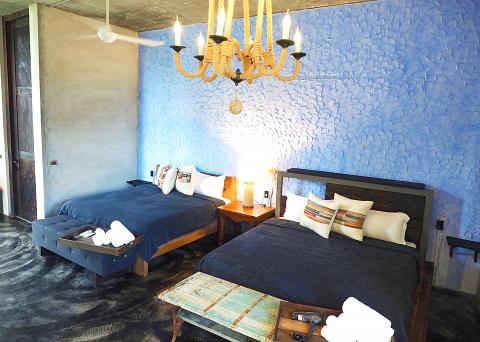
Photo courtesy of Dear B&B
“You can’t see what their story is, why [the owners] want to do this, what their personal motivations are,” Wen says. “We felt it was a pity, and that someone should help them tell their story.”
This also explains why Dear B&B at times reads like a literary magazine, with atmospheric retellings of the homestay owners’ biographies and their passion for design and hospitality.
Beyond individual motivations, Lin and Wen also link the current flourishing of homestay ownership as a vocation to a willingness to trade off financial comfort to fulfil aspirations.
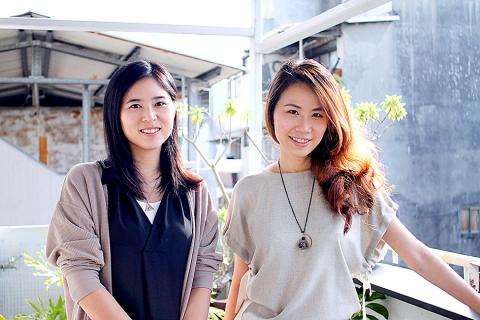
Photo: Davina Tham, Taipei Times
“I think it has something to do with the Taiwanese character,” Lin says. “We are happy to take on challenges, to take risks and have dreams.”
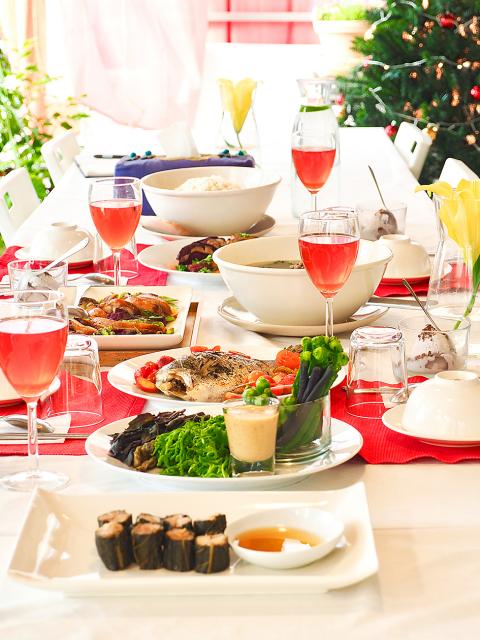
Photo courtesy of Dear B&B

No one saw it coming. Everyone — including the Chinese Nationalist Party (KMT) — expected at least some of the recall campaigns against 24 of its lawmakers and Hsinchu Mayor Ann Kao (高虹安) to succeed. Underground gamblers reportedly expected between five and eight lawmakers to lose their jobs. All of this analysis made sense, but contained a fatal flaw. The record of the recall campaigns, the collapse of the KMT-led recalls, and polling data all pointed to enthusiastic high turnout in support of the recall campaigns, and that those against the recalls were unenthusiastic and far less likely to vote. That

Behind a car repair business on a nondescript Thai street are the cherished pets of a rising TikTok animal influencer: two lions and a 200-kilogram lion-tiger hybrid called “Big George.” Lion ownership is legal in Thailand, and Tharnuwarht Plengkemratch is an enthusiastic advocate, posting updates on his feline companions to nearly three million followers. “They’re playful and affectionate, just like dogs or cats,” he said from inside their cage complex at his home in the northern city of Chiang Mai. Thailand’s captive lion population has exploded in recent years, with nearly 500 registered in zoos, breeding farms, petting cafes and homes. Experts warn the

A couple of weeks ago the parties aligned with the People’s Republic of China (PRC), the Chinese Nationalist Party (KMT) and the Taiwan People’s Party (TPP), voted in the legislature to eliminate the subsidy that enables Taiwan Power Co (Taipower) to keep up with its burgeoning debt, and instead pay for universal cash handouts worth NT$10,000. The subsidy would have been NT$100 billion, while the cash handout had a budget of NT$235 billion. The bill mandates that the cash payments must be completed by Oct. 31 of this year. The changes were part of the overall NT$545 billion budget approved
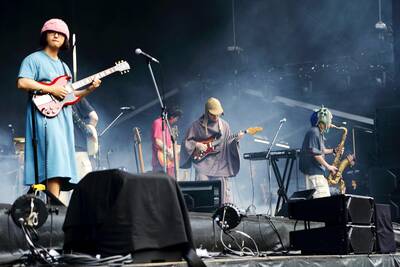
Before performing last Friday at Asia’s bellwether music festival, Fuji Rock in Japan, the Taiwanese indie band Sunset Rollercoaster (落日飛車) had previously performed on one of the festival’s smaller stages and also at Coachella, the biggest brand name in US music festivals. But this set on Fuji Rock’s main stage was a true raising of the bar. On a brilliant summer’s evening, with the sun rays streaming down over a backdrop of green mountains and fluffy white clouds, the performance saw the Taiwanese groovemasters team up with South Korean group Hyukoh, with whom they’ve formed a temporary supergroup called AAA